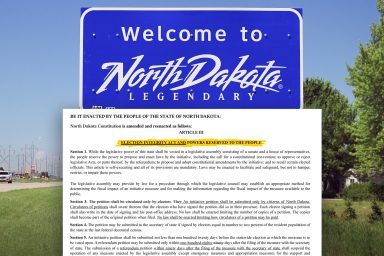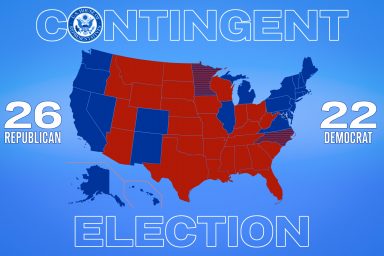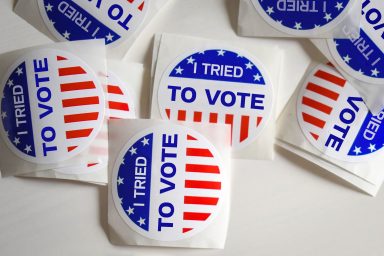Election integrity experts have laid out a blueprint for states to implement risk-limiting audits after conducting three successful pilot tests in Rhode Island.

In 2016, Rhode Island officials were astonished when a referendum delivered the implausible tally of 8,471 “no” votes and only five “yeses.” The state’s Board of Elections ordered a recount, through which officials learned that their electronic voting machines had a grave vulnerability — they inaccurately read voter marks on the ballots.
To prevent such mistakes from recurring, state legislators passed a new law requiring risk-limiting audits (RLA) in 2020.
How do they work and how accurate are they? A new report shows that such audits work well and effectively.
According to the report, “Risk-Limiting Audit Methods in the State of Rhode Island,” the Rhode Island Risk-Limiting Audit (RIRLA) Working Group performed pilot audits to learn how effective such audits are in the state, after Democratic Gov. Gina Raimondo signed into law a bill requiring them beginning in the 2020 primary election.
RLAs’ use of statistical sampling to compare backup paper records of votes to electronic totals from voting machines is considered the “gold standard” of postelection audit methods. Common Cause Rhode Island, Verified Voting, and the Brennan Center for Justice partnered with state election officials to conduct three RLA pilot tests in January — a ballot-level comparison, ballot polling, and a batch comparison audit.
The results showed that, with adequate staff and funding, RLAs allow election officials to quickly and accurately audit election results within hours.
The RIRLA recommended conducting RLAs with a ballot-level comparison (BLC) because it identifies discrepancies to an individual ballot, and provides direct information about a voting machine. A BLC is a random sample of voted ballots that is manually counted and allows election officials to check the results against a voting machine’s unofficial total ballot count.
After the 2016 election showed numerous election equipment vulnerabilities, election integrity activists asked Congress for federal funding and auditable paper ballots. Federal investigators have found no evidence that individual votes were changed, but RLAs aim to lower the risk and identify problems in voting machines.
Nearly 184,000 people voted in Rhode Island’s 2016 primary election and 464,000 during the general election. With 500,000 people expected to cast a ballot during the 2020 general election, the report said that RLAs will allow election officials to be confident that “the reported winner is the actual winner.”
“We also think it’ll be a valuable tool for others across the country looking to follow the state’s leadership on this critical component of election security,” said Wilfred Codrington, counsel in the democracy program at the Brennan Center for Justice at NYU Law.
Risk-limiting audits can be highly efficient, the report found. “They can be designed to do the amount of work — no more and no less — required to confirm a particular election contest outcome (or multiple outcomes) to a prespecified risk limit,” the report said.
And, according to the National Conference of State Legislatures, RLAs increase the likelihood of “discovering and taking appropriate action in the case of a wrong outcome.”
Getting the Count Right: Experts Debate Election Audits at MIT Conference
“This report gives election officials a roadmap on how to design and implement effective risk-limiting audits,” said Marian Schneider, president of Verified Voting.
Rhode Island and Colorado are currently the only states that require RLAs. In November 2017, Colorado conducted the first coordinated statewide RLAs. Other states have taken notice, with Indiana Gov. Eric Holcomb (R) signing SB 405 into law in April — allowing the secretary of state to conduct pilot tests for RLAs in certain local jurisdictions.
“This report provides crucial data about how these audits perform that will be invaluable as their use spreads,” said John Marion, executive director of Common Cause Rhode Island.
With the continued threat of hostile foreign actors interfering in future elections, Marion said, the report lays out a blueprint for other states considering the implementation of RLAs to assess “the very real and growing threat to the integrity of our elections.”
Related front page panorama photo credit: Adapted by WhoWhatWhy from Wynn Pointaux / Pixabay and Greg Reese / Pixabay.



